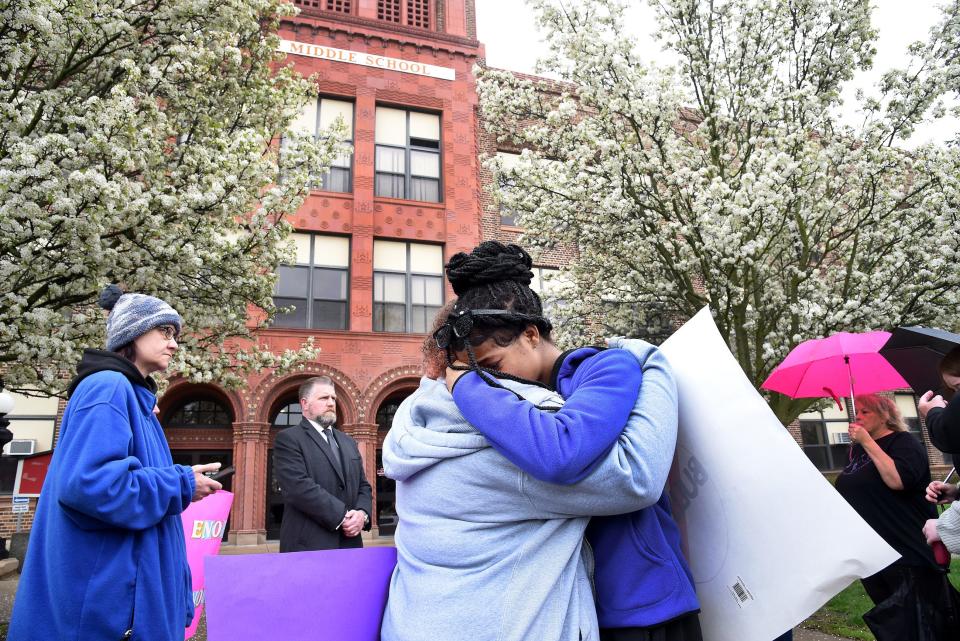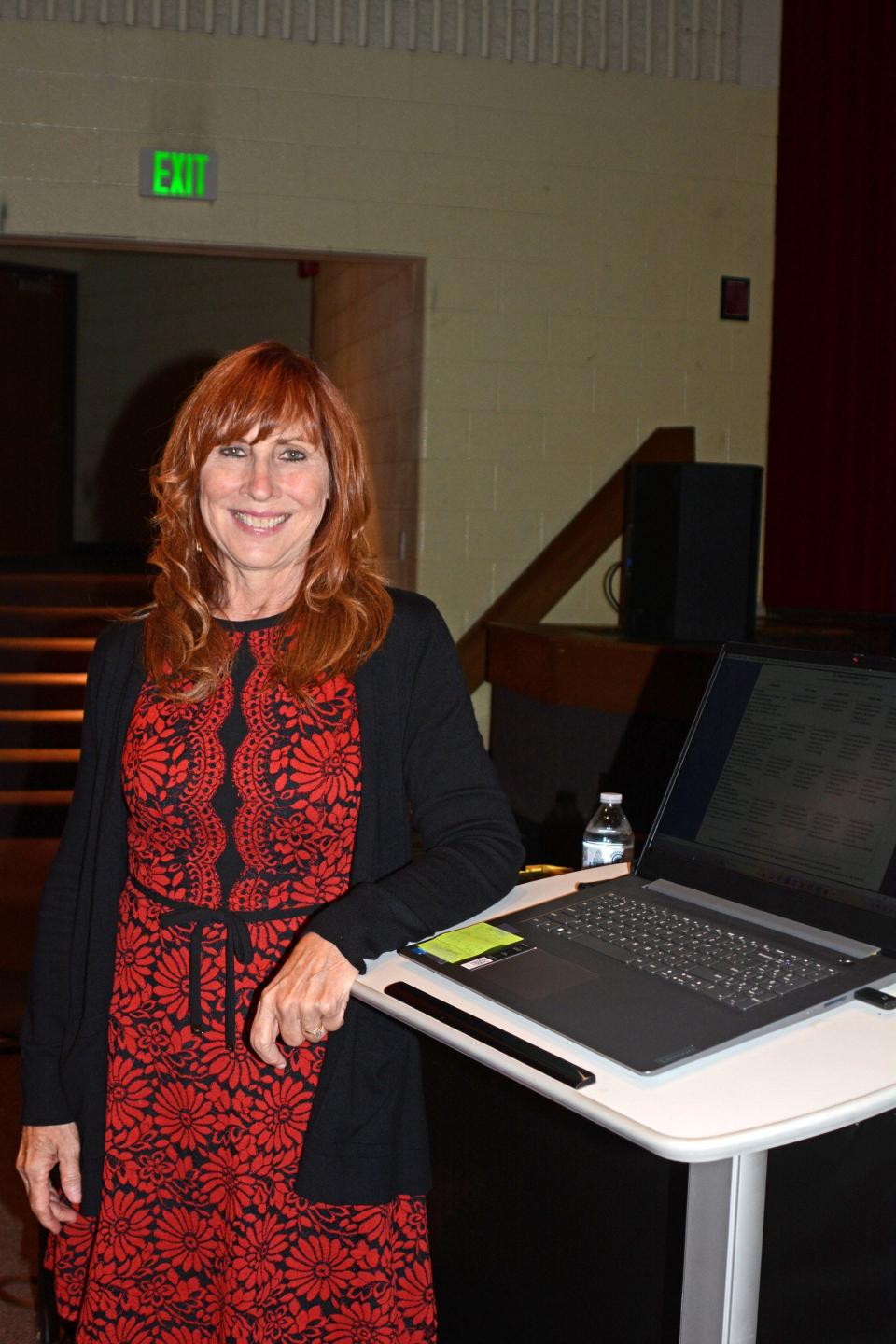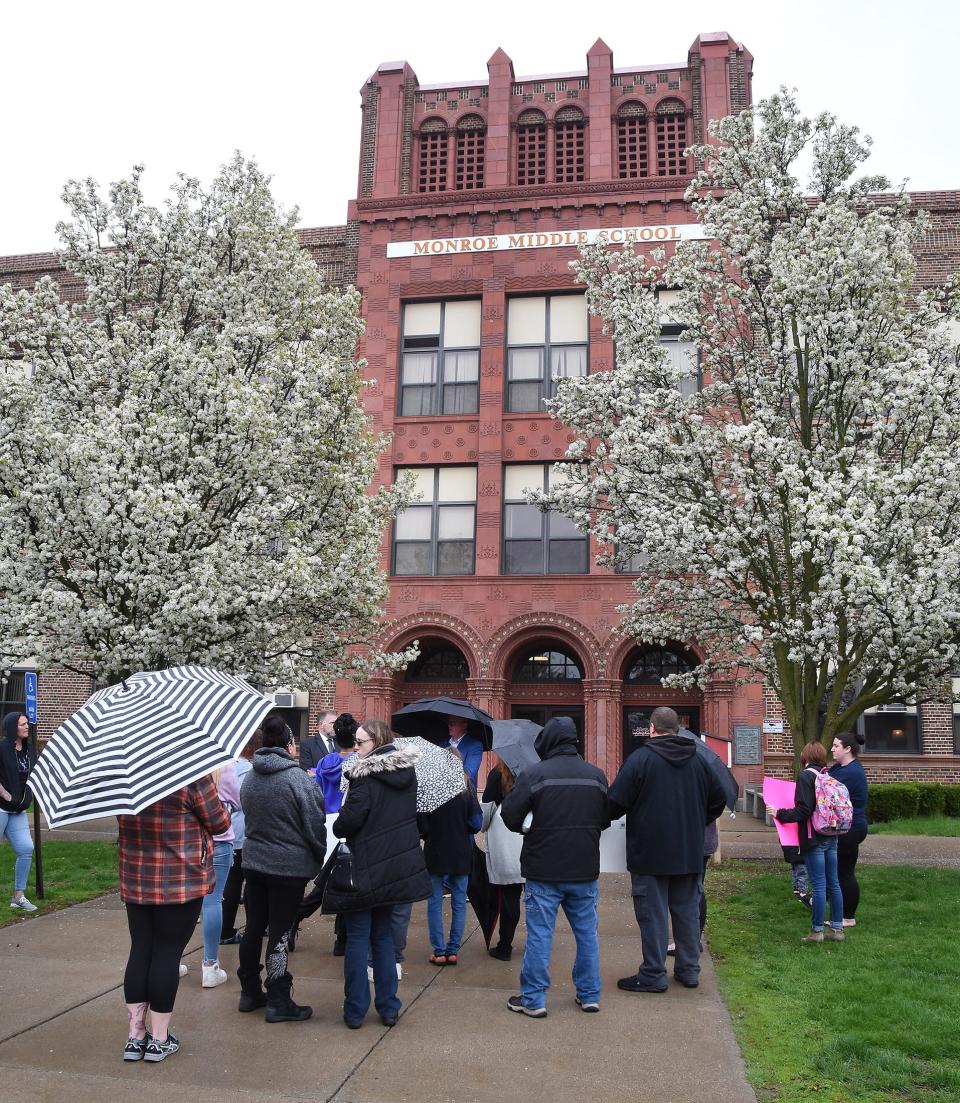'We have to be good role models': Psychologist urges parents to stop kids' mean behavior
Marcia McEvoy says we are raising a generation of narcissists and that is increasing mean behavior.
McEvoy, Ph.D., of Grand Rapids is a licensed psychologist who's been called an expert in mean behavior prevention. She speaks all over the country and has spent some of this summer and fall at Monroe Public Schools, which has recently increased its efforts to curb mean behavior.
Earlier Coverage: 'Now begins the real work': MPS, psychologist share plans to combat mean behavior
On Thursday, McEvoy spoke at Monroe Middle School about MPS’ new efforts. In the hour-long program, she also offered advice for parents. Among Thursday’s attendees was the mom of an 8-year-old who’s been the victim of mean behavior by peers. She came to the program to learn how to help her child.

McEvoy said there are two troublesome parenting styles that can lead to mean behavior among children.
The first is rare: too little love and too much freedom.
The second is common: too much indulgence.
“There is too much indulgence. Children are like little princes or princesses. No one says no. They think they should always be first. We’re raising a generation of narcissists," McEvoy said.

McEvoy recommended the small book “Have the Guts to Do it Right: Raising Grateful and Responsible Children in and Era of Indulgence” by Sheri Moskowitz Noga. The book discusses how to develop strong, loving attachments to children but, at the same time, to set appropriate limits.
“Everyone who is parenting now needs this book,” McEvoy said.
She also urged parents to be good role models. In a role-playing exercise, McEvoy and volunteers from the audience illustrated how to be good and poor role models. In the scenario, McEvoy was a mom in a van with her daughter and some of her daughter’s friends. The girls began gossiping about a classmate.
McEvoy as the mom illustrated three choices. First, she listened to the gossip, but said nothing. Next, she joined in the conversation, even contributing gossip about the victim's mom. Lastly, she intervened early.

“This is a teaching moment” McEvoy said. “Have a guided conversation about what is mean. … Say, 'Not in my van or my class.' We have to tell them, that is not our values. We have to be good role models. We are not our kids' best friends. They are always watching more than listening to the words we say. Truly try to do the right thing.”
McEvoy said families can help stop mean behavior by squelching sibling cruelty, limiting exposure to violent media and, especially, by encouraging empathy from an early age. This could mean volunteering to help those in need through church or community events, such as a soup kitchen.
“The best antidote to cruelty is to each empathy early and often. Helping others is an adrenaline boost like drugs and alcohol," she said.
McEvoy said cruel treatment of siblings should be a warning sign to parents that their children may be mistreating others. Another warning sign is concern from school staff members.
“Are school staff concerned? If they are, that is a red flag. They are developmental experts in every age. If they say this behavior is not typical, pay attention," McEvoy said.
Subscribe Now: For all the latest local developments, breaking news and high school sports content.
If parents learn their child was a silent, inactive bystander to mean behavior, they should ask questions. In her training at all MPS buildings this year, McEvoy is teaching students to be active bystanders who call out mean behavior.
“Ask what they did to help. If they say 'nothing,' ask why,” McEvoy said.
This article originally appeared on The Monroe News: Psychologist urges parents to stop kids' mean behavior

